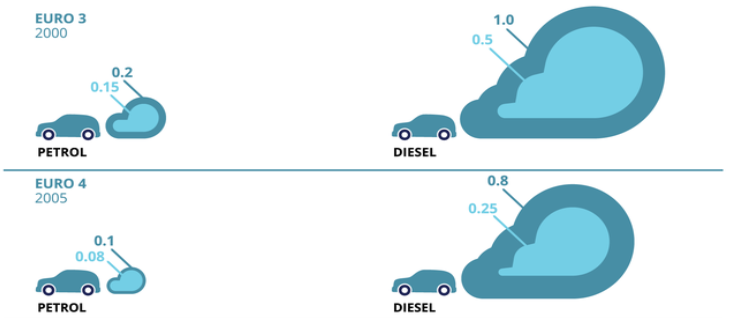There is considerable interest in, and support for diesel scrappage schemes. The challenge is to target polluting vehicles making the biggest contribution to poor air quality. In my recent blog on air quality, I said that it would be hard to devise a scrappage scheme for the more polluting diesel vehicles. On reflection, I can see a way forward.
The Mayor of London has advocated a national diesel scrappage fund. Transport for London has developed detailed proposals that involve targeting small businesses, charities, schools, low-income households and the oldest taxis, at a total cost for London of some £500m. The recent Defra/DfT Technical Report on reducing NO2 levels considers a national diesel scrappage scheme aimed at all pre-Euro 6 diesel cars and vans, and also a scheme to replace non-compliant vehicles with battery electric vehicles. The former is extremely expensive, while the latter makes very limited impact.
I propose that a scrappage scheme could be integral to the Ultra Low Emission Zone (ULEZ) proposed for London, which would naturally target the vehicles making the greatest contribution to poor air quality.
The ULEZ will generate net revenue that could be used to fund a scrappage scheme. The targeted vehicles would be those that pay the largest cumulative charges for entry into the zone, since these make the greatest impact on air quality. The formula might be a contribution of £X00 to scrappage for every £1000 of cumulative charges – a cash-back offer. The value of X could be adjusted in the light of experience of uptake.
Owners scrapping a car or van under the scheme would need to provide evidence that the vehicle had been scrapped. To discourage replacement by a further polluting vehicle, it might be a condition of the scrappage scheme that the owner would not be allowed in future to pay the standard charge for entry of a non-compliant vehicle into the ULEZ, and would therefore incur the penalty charge should this be done.
Over time, as non-compliant vehicles are scrapped, revenue from the ULEZ would fall, as would NO2 levels. Depending on how far the latter was from the statutory limit, the scope of the zone could be extended, whether to more recent vehicles or to a wider geographic area.
I suggest that TfL considers in detail how a scrappage scheme might work as part of a the ULEZ, and what incentives might be sought from the Government to adopt such arrangements.

